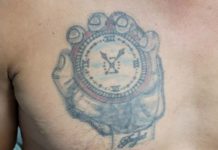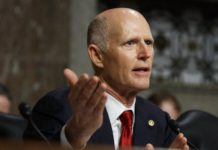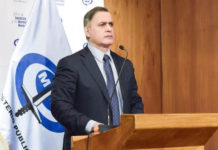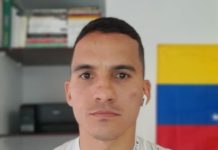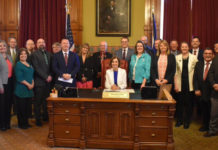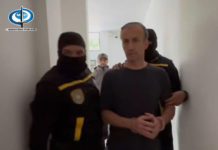
February 21, 2014, 01:00 pm
By Yleem D.S. Poblete, Ph.D.
British historian Lord Acton memorably said that “power corrupts and absolute power corrupts, absolutely”. The situation in Venezuela is a perfect example of the veracity and grim consequences of this observation.
For years, Venezuela’s domestic political situation has been marked by government-led persecution, harassment, widespread censorship and systematic closure of independent media. There has been a rise in anti-Semitism, imprisonment of political opponents, rampant denial of basic civil liberties, and overall deterioration of democratic freedoms, processes, and institutions.
The Chavez and Maduro administrations violated international human rights standards also affirmed in multiple inter-American declarations and agreements. The Venezuelan government should have thus been found in breach of its obligations and deemed to have forfeited its privileges and membership in multilateral fora. It has yet to happen.
Even the entry into force of Venezuela’s denunciation of the American Convention on Human Rights was met with mere expressions of “regret” and “concern” about the tacit impunity resulting from this action. Any human rights violations against the Venezuelan people taking place after September 10, 2013 may not be reviewed by the Inter-American Court of Human Rights.
The general silence from responsible nations has also sent a clear message to those fighting for Venezuelan democracy that they are alone.
There is now an opportunity to correct this wrong. Regional democratic actors must lead the effort.
Platitudes are insufficient in response to the killing of Venezuelan students and several Catholic priests following what started as peaceful anti-government demonstrations. They are deficient in response to raids by Venezuelan security forces of opposition headquarters, to reports of additional Cuban intelligence and military personnel being deployed to Venezuela, and to increased violence in Caracas.
The OAS Secretary General, Jose Miguel Insulza, must not limit himself to calling and relying on the Venezuelan government to conduct an “honest” investigation into recent events when questions continue to mount about its complicity in the deaths and its subsequent actions against anti-government demonstrators and leaders. Insulza and OAS member states should look for other mechanisms such as the Inter-American Commission on Human Rights. This hemispheric human rights body should be empowered to conduct a robust independent inquiry and the Maduro administration required to grant access to requested witnesses, government officials, and opposition leaders or face consequences.
The OAS and individual member states should heed the call from former Panamanian ambassador to this regional organization, Guillermo Cochez, and international jurist Asdrúbal Aguiar, for an emergency session of the Permanent Council. The discussion should extend beyond recent developments and address the Venezuelan government’s ongoing violations of its commitments—a situation requiring the OAS, under a myriad of regional declarations and agreements, to take proactive steps to defend democracy before “fundamental values and principles collapse.” Any Council action must also provide for the wellbeing of opposition figures and protection of their due process rights.
The U.S. should be proud of standing with freedom-loving Venezuelans and supporting civil society against assaults on their fundamental liberties. As a bastion of democracy in the Western Hemisphere and global power, it must not be intimidated into paralysis by the Venezuelan government’s expulsion of American diplomats. The U.S. remains the single largest donor to the OAS, contributing over $65 million in Fiscal Year 2013— equivalent to an estimated 41 percent of the total 2013 OAS budget. It should unite with fellow democracies to counter the alignment of rogue regimes and use voice, vote, diplomatic and financial leverage to offset the undue influence repressive governments supportive of Venezuela’s leadership wield in multilateral fora.
Democratic nations should consider issuing demarches to Venezuela’s ambassadors in their countries, outlining a series of punitive actions to be undertaken if the Maduro administration does not reverse course and immediately adhere to its regional and international obligations. These measures may include: freezing the accounts and assets of Venezuelan government leaders; blocking their travel; reducing imports of Venezuelan oil or blocking payments on such transactions.
Without accountability for those continuing their assault on fundamental liberties, it will be difficult for calm to prevail in Venezuela in the longer-term.
Swift and decisive action will help ensure a democratic future for Venezuela and can have far reaching implications for the struggle between freedom and oppression elsewhere in the Western Hemisphere.
Poblete is a former chief of staff of the Committee on Foreign Affairs of the House of Representatives. She is also a fellow at the Institute for Policy Research at the Catholic University of America
Read more: http://thehill.com/blogs/congress-blog/foreign-policy/198841-venezuela-an-opportunity-to-defend-democracy#ixzz2u1IY03gA
Follow us: @thehill on Twitter | TheHill on Facebook


